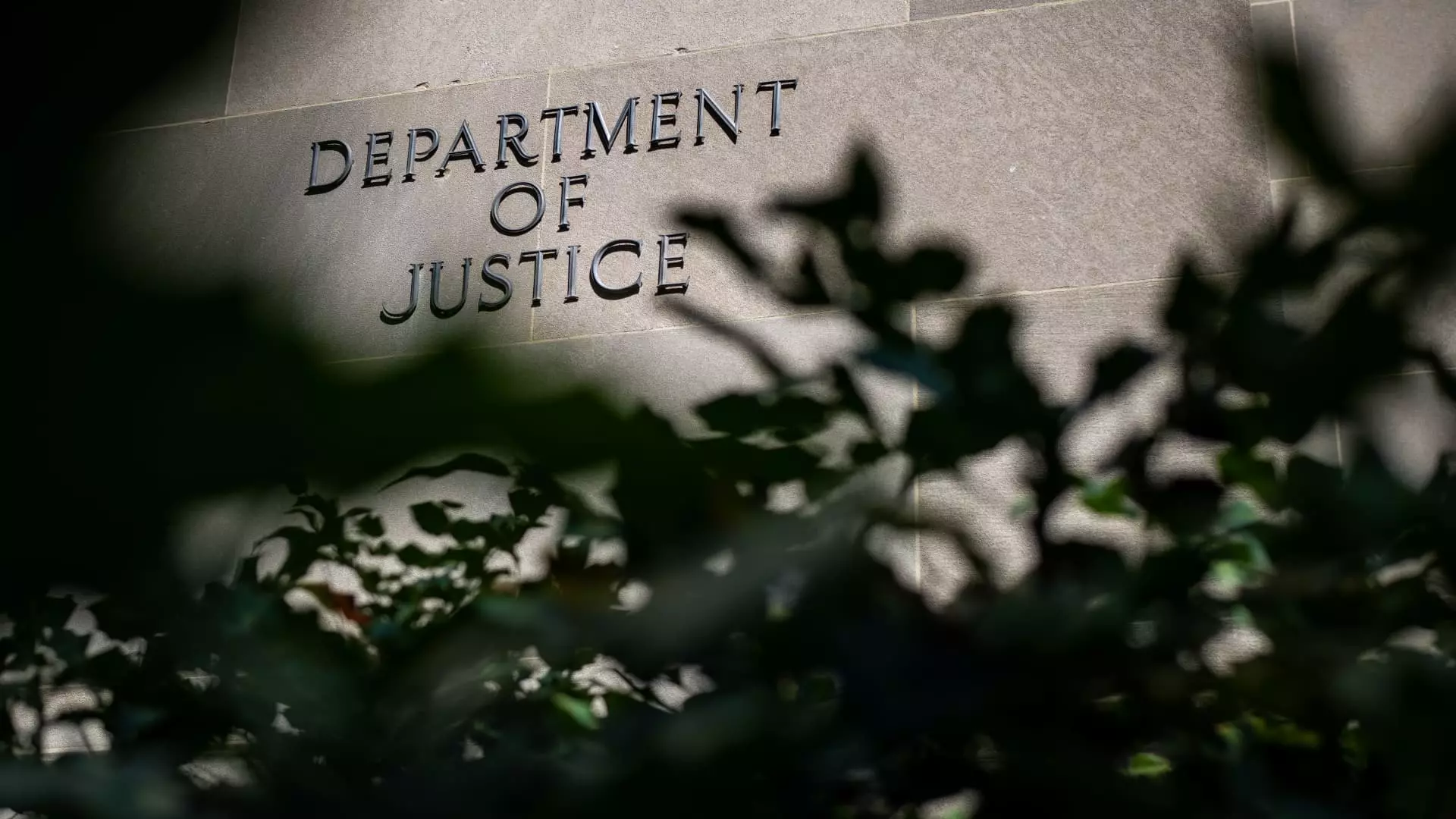The recent dissolution of the National Cryptocurrency Enforcement Team (NCET) by the U.S. Justice Department is not just a bureaucratic decision; it’s a signaling of a seismic shift in how the federal government will engage with the burgeoning digital asset landscape. Deputy Attorney General Todd Blanche’s memo announcing this closure outlines a radical pivot towards decentralization in handling cryptocurrency crimes. This decision raises profound questions about the future of regulatory frameworks and investor protection within the crypto space.
Under the Biden administration, the NCET was established to confront and investigate the illicit use of cryptocurrencies, addressing a growing problem that had implications for money laundering, fraud, and organized crime. The team effectively executed high-profile investigations, including notable cases against major exchanges and individuals involved in facilitating illicit activities. Surprising everyone with its sudden disbandment, this memo from Blanche has effectively sunk those efforts, opting instead for an approach that casually sidesteps the sophisticated intricacies of digital asset regulation.
Victimization and Financial Crime: A Sole Focus
What is most concerning about this shift is the new directive prioritizing the prosecution of individuals who actively exploit and victimize digital asset investors. This is commendable in theory but naively simplistic in execution. The memo explicitly states that the focus will not include enforcement against crypto exchanges and services unless malicious intent is proven, which creates a gaping loophole for bad actors to manipulate the system. It’s as if the Justice Department is throwing its hands up, indicating that unless they’re caught red-handed, these entities will operate with impunity.
In this decentralized ethos, the department has also indicated that they will cease ongoing investigations that do not align with their newly minted priorities. This creates a chilling effect, as countless victims of fraud will potentially find themselves without recourse. The overreaching ambition to treat digital assets like benign tokens, entirely immune from regulation unless grossly mismanaged, overlooks the very real and damaging repercussions of market manipulation and fraud.
The Trump Factor: A Personal Stake in Deregulation
This draconian policy shift also dovetails conveniently with the interests of the political machinery currently in charge. President Donald Trump’s executive order advocating for open blockchain networks aligns perfectly with his personal investments and involvements in crypto projects. Selling off labels like World Liberty Financial, a yet-to-be-launched decentralized bank, along with meme-coins bearing his family name, unmistakably puts a glaring spotlight on potential conflicts of interest, threatening to erode any public trust in the system.
Allowing the Justice Department to take a backseat to financial regulators not only absolves them of responsibility but also raises serious ethical questions. The lack of meaningful regulation in this volatile space could have disastrous consequences for individuals and businesses alike, leaving many vulnerable to predation and loss. With the cryptocurrency market facing declines amid broader economic turmoil, employing a deregulatory approach seems counterintuitive, fostering a Wild West mentality instead of a well-structured financial environment.
A Cautionary Path Forward
Rather than entrenching itself in essential oversight, the Justice Department’s strategy effectively hands the keys of regulatory enforcement to an industry riddled with risks and uncertainties. Under a framework where they will not pursue defendants for violations unless awareness and intention are demonstrated, the potential for exploitation grows exponentially. This trend fosters an atmosphere of negligence, where people may now think twice before entering the crypto market out of fear of becoming unintentional victims of poorly regulated exchanges.
The utter dismissal of earlier measures that aimed to ensure accountability reflects a troubling trend in U.S. governance—a willingness to prioritize corporate interests over fundamental consumer protections. Instead of cultivating a robust environment for accountability, the disbandment of the NCET feels more like an unshackling of the wolves in sheeps’ clothing, ready to prey on unsuspecting investors just trying to navigate a complex digital world.
Moreover, as cryptos languish in uncertainty, now is the time for a roadmap—a structured set of regulations and guidelines that could not only protect investors but also revitalize a struggling market. It is dismaying that the current administration appears more focused on dismantling the very safety nets created by its predecessor than on building a universally beneficial framework for all stakeholders in the digital asset ecosystem. The time for reckless deregulation is over; we must seek responsible governance that addresses the realities of a rapidly evolving financial landscape.


Leave a Reply